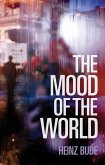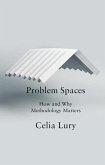From the rise of terrorism to the uncertainties associated with economic crisis and recession, our age is characterized by fear. Fear is the expression of a society on unstable foundations. Most of us feel that our social status is under threat and our future prospects in jeopardy. We are overwhelmed by a sense of having been catapulted into a world to which we no longer belong.
Tracing this experience of fear, Heinz Bude uncovers a society marked by disturbing uncertainty, suppressed anger and quiet resentment. This is as true in our close relationships as it is in the world of work, in how we react to politicians as much as in our attitudes towards bankers and others in the financial sector. Bude shows how this fear is not derived so much from a 'powerful other' but rather from the seemingly endless range of possibilities which we face. While this may seem to offer us greater autonomy and freedom, in reality the unknown impact and meaning of each option creates a vacuum which is filled by fear.
What conditions lead people to feel anxious and fearful for themselves and others? How can individuals withstand fear and develop ways of making their fears intelligible? Probing these and other questions, Bude provides a fresh analysis of some of the most fundamental features of our societies today.
Tracing this experience of fear, Heinz Bude uncovers a society marked by disturbing uncertainty, suppressed anger and quiet resentment. This is as true in our close relationships as it is in the world of work, in how we react to politicians as much as in our attitudes towards bankers and others in the financial sector. Bude shows how this fear is not derived so much from a 'powerful other' but rather from the seemingly endless range of possibilities which we face. While this may seem to offer us greater autonomy and freedom, in reality the unknown impact and meaning of each option creates a vacuum which is filled by fear.
What conditions lead people to feel anxious and fearful for themselves and others? How can individuals withstand fear and develop ways of making their fears intelligible? Probing these and other questions, Bude provides a fresh analysis of some of the most fundamental features of our societies today.
Dieser Download kann aus rechtlichen Gründen nur mit Rechnungsadresse in D ausgeliefert werden.
" 'Fear,' writes Heinz Bude, 'reveals the direction in which a society is moving.' Rather than analyzing the symptoms of angst today - proliferating in blogs, self-help literature, and anxiety disorders - Bude masterfully explores the existential, political, and generational experiences that create the conditions for a 'society of fear.'"
John Borneman, Princeton University
"Consider that this slim volume, newly translated for the English-speaking market, was originally published in German in 2014 when the seeds of current tumult were perceptible but the political fruits not yet fallen -- and that in this Bude resembles the pioneering Freud: Civilisation was published in 1930 just as the world was about to undergo a period of havoc."
The Financial Times
John Borneman, Princeton University
"Consider that this slim volume, newly translated for the English-speaking market, was originally published in German in 2014 when the seeds of current tumult were perceptible but the political fruits not yet fallen -- and that in this Bude resembles the pioneering Freud: Civilisation was published in 1930 just as the world was about to undergo a period of havoc."
The Financial Times









